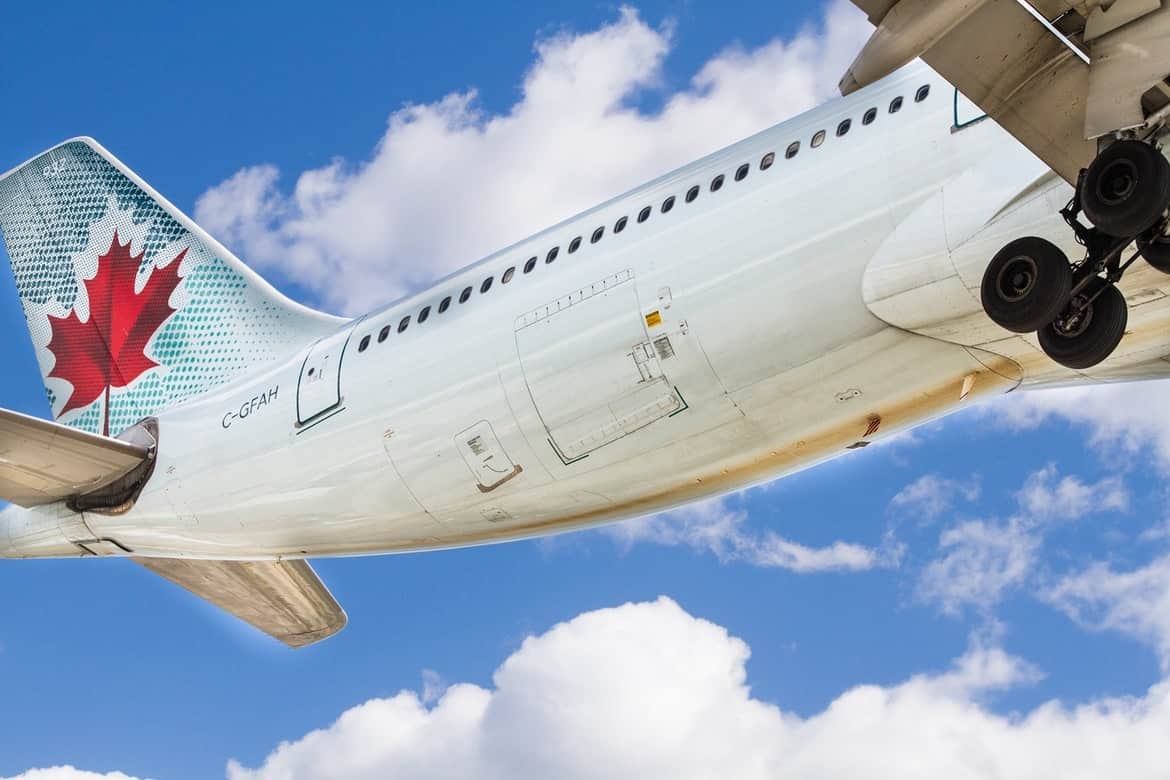See how passenger plane turns into cargo freighter at Mississauga’s Pearson Airport
Published December 7, 2021 at 3:02 pm

A rather large, wide-bodied aircraft touched down at Pearson Airport in Mississauga for the first time on Sunday, but it wasn’t carrying any passengers.
The plane in question is Air Canada’s first converted Boeing 767-300ER freighter (see the conversion process below), which officials with Canada’s flagship carrier say marks “the start of a new chapter for Air Canada Cargo.”
It’s actually somewhat like revisiting an old chapter, as Air Canada has a long history of transporting goods around the world via freighter aircraft that dates back to 1937.
We're pleased to welcome @Air Canada's first @Boeing 767-300ER freighter to Pearson! Cargo continues to play a vital role during the pandemic and we're proud to help facilitate the movement of goods into Canada, and from Canada to the world. https://t.co/qP7zC5XHl7
— Toronto Pearson (@TorontoPearson) December 5, 2021
Today, Air Canada is in the midst of again rapidly growing its cargo division at Pearson, announcing in October that it’s embarking on a $16-million project at the Mississauga-based airport to improve its cold chain handling capabilities for shipments that include pharmaceuticals, fresh food and other perishables.
The major renovation will reinforce Pearson’s role “as the cornerstone of our modern global cargo network,” Air Canada officials said in a news release.
The air cargo business has played a key role in keeping revenue flowing for Pearson Airport during the COVID-19 pandemic, and airport officials want to keep that cash stream alive and growing.
The planned Air Canada renovation is the largest cargo project the carrier has undertaken at Pearson since 1965, when it doubled the size of its cargo hub here to accommodate its acquisition of new freighters.
At the time, Air Canada had just taken on its new name, having rebranded from Trans-Canada Air Lines as it had been known since its inception in 1937.
Measured by cargo capacity, Air Canada Cargo is today Canada’s largest provider of air cargo services, officials with the airline note. It has a presence in more than 50 countries, and runs international hubs in Chicago, London and Frankfurt in addition to its hubs on Canadian soil in Mississauga, Montreal and Vancouver.
And Air Canada says it’s also one of only a handful of passenger carriers in the world to ever record more than $1 billion in annual revenue from its cargo line.
The Boeing 767 that landed at Pearson two days ago is the first of a number of others that will join the Air Canada Cargo fleet in the future.
But that aircraft still isn’t the largest to ever carry the freight for the Canadian carrier: during the COVID-19 pandemic, Air Canada temporarily converted several Boeing 777s and Airbus A330s by removing passenger seats to allow for additional cargo.
INsauga's Editorial Standards and Policies